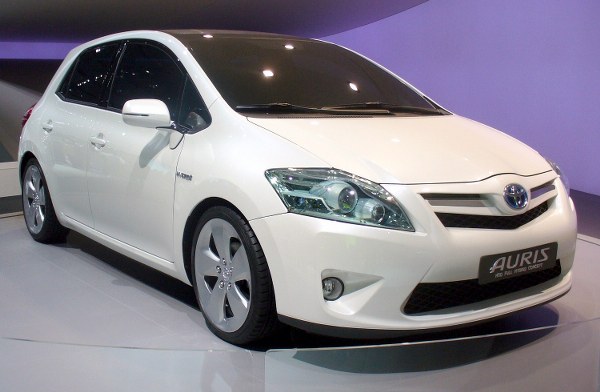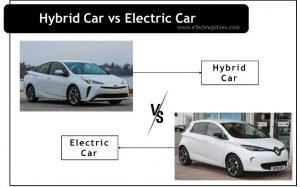With global environmental concerns, people are switching to low-emission or zero-emission vehicles. You can either select a zero-emission all-electric plug-in model (EV) or a hybrid car, with a combustion engine and battery-powered motor (HEV). But which one should you prefer? This article will discuss the differences between an electric and a hybrid vehicle.
What is a hybrid car?

A hybrid car combines a conventional petrol or diesel engine with an electric motor and batteries. Although it is not as ‘green’ as fully electric cars, hybrids generally consume less fuel and produce less CO2 than conventionally powered cars.
The addition of the electric motor and batteries makes hybrids more expensive to buy than conventional cars, but the fuel savings can offset the higher purchase price over time. For many drivers, the appeal of a hybrid is the reduced running costs and environmental impact.
However, it is important to bear in mind that hybrids still emit some emissions, so they are not suitable for everyone. If you are looking to reduce your carbon footprint, a fully electric car may be a better option.
Types of Hybrid Cars
Hybrid cars are of two types: Hybrid electric vehicles (HEV) and Plug-in hybrid electric vehicles (PHEV).
Hybrid Electric Vehicle (HEV)
A hybrid car consists of an internal combustion engine, an electric motor, and a battery pack. These are completely gasoline-fueled and do not have the option to charge like an EV. The batteries are charged by regenerative braking or by excessive engine power while driving.
Plug-in Hybrid Electric Vehicle (PHEV)
A plug-in hybrid car consists of a charging port in addition to a gas engine and a battery pack. The batteries used in PHEVs are medium-sized (bigger than HEV but smaller than EVs). This increases the PHEV’s range, and if the battery runs out, the gasoline engine turns on automatically and powers the car.
What is an electric car?

An EV is a vehicle that uses one or multiple electric motors to power it, replacing the typical petrol or diesel combustion engine found in most vehicles. Alongside these motors are lithium-ion batteries – the same ones found in pretty much everything from smartphones and laptops to power tools. Each car will have its own charge time which depends on two things:
- The size of the battery.
- The speed of the charging point.
In terms of performance, EVs are very similar to hybrids. However, there are some key differences between the two technologies.
Electric cars vs Hybrid cars: Key Differences
| Parameters of Comparison | Hybrid Car (HEV) | Electric Cars (EV) |
| Engine | Combination of an internal combustion engine (ICE) with an electric motor | Only Electric motor |
| Emissions | The emission level is more than that of electric cars | Environment-friendly |
| Power source | Battery and Fuel (Petrol, Diesel, or Gas) | DC battery pack |
| Charging | Not Required | Required |
| Price | Less costly than electric cars | Expensive in comparison to hybrid cars. |
Which one should you prefer?
EVs are best if you have consistent access to a 240V charger. Their best advantage is that they are environmentally friendly. But if you prefer long trips where charging stations are limited, opting for a hybrid vehicle may be better. They are even cheaper than electric vehicles and offer a better range. Although they emit pollutants, they have a low carbon footprint than the traditional gas cars.
